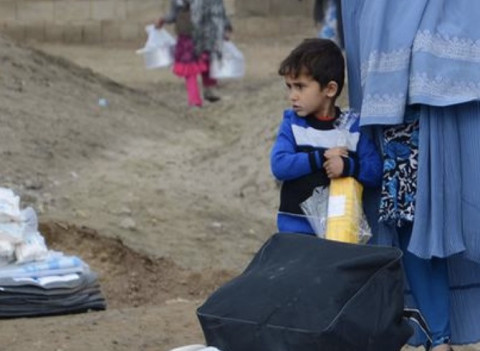
GCED Basic Search Form
Quick Search
Usted está aquí
Noticias

The Special Representative of the Secretary-General for Afghanistan, Roza Otunbayeva, expressed concern about the numerous negative trends observed, including the denial of civil, cultural, economic, political and social rights of the population, repressive policies and measures against women and girls, public manifestations of violence including corporal punishment and death penalties, and the lack of Inclusive governance and marginalization of minorities.
In her briefing before a Security Council session held today, Wednesday, to discuss the situation in Afghanistan, Otunbayeva added that the United Nations Assistance Mission in Afghanistan (UNAMA) will continue to work to maintain its communication with the de facto authorities there (the Taliban) regarding respect for human rights and ways to increase consultations. With the local population, as well as their participation in political decision-making, so that all available resources in Afghanistan can be deployed to achieve the interests of the country.
She explained that the mission will continue to call for more funding to be directed towards basic humanitarian needs to build more social and economic resilience, adding that assistance with basic services is “a lifeline for the most vulnerable Afghans, as women constitute the majority of beneficiaries.”
She also said that they will encourage donors to identify areas where they can provide long-term sustainable assistance that “directly benefits the Afghan people,” which includes measures to reduce the effects of climate change, reduce the effects of the opium ban, and support the demining process in Afghanistan. In cooperation with the de facto authorities.
She added, "We will work to strengthen measures aimed at supporting economic stability as a basis for reducing poverty."
The importance of the Doha meetings
The Special Representative of the Secretary-General in Afghanistan said that in the next phase, UNAMA will begin preparations for the next meeting in Doha, adding that “the next meeting should have a practical agenda and should involve the de facto authorities as well as other Afghan stakeholders.”
Otunbayeva stressed the importance of the recent meeting held in the Qatari capital, Doha, of special envoys concerned with Afghanistan, in which the Secretary-General of the United Nations participated.
She said that despite the de facto authorities' decision not to attend, the meeting was "important" for several reasons, including reaffirming the international consensus reached at the first Doha meeting in May last year on ensuring that the needs of the Afghan people remain met. top the international agenda, allowing special envoys to hear the views of Afghan civil society, and reaffirming the international community's ongoing concerns about human rights in Afghanistan.
The UN official explained that during her discussions with the de facto authorities in Afghanistan after the Doha meeting, “they made clear that their decision not to attend was not a rejection of their declared desire to deal with the international community, but rather a reflection of their concern that they would not be treated as full stakeholders in the discussions on Afghanistan,” stressing that The mission will do its utmost to encourage their participation in the next meeting in this way.
Serious harm to girls and women
The Special Representative noted that although the daily security situation has improved for millions of people since the Taliban took power, “this has come at an enormous cost.” Just two days away from International Women's Day, which this year highlights the need to invest in women, "what we are seeing in Afghanistan is exactly the opposite," she said.
She added that denying women and girls access to education and work, and keeping them out of many aspects of public life, has caused serious harm to their mental and physical health and livelihoods. “The recent arbitrary arrests for alleged violations of the Islamic dress code amount to another human rights violation, and carry an enormous stigma for women and girls,” Otunbayeva said.
She warned that this matter has a horrific impact among women on a broader scale, as many of them now fear moving around in public places. She called on the de facto authorities to abolish these restrictions, adding that the longer these restrictions continue, the greater the harm.
Independent evaluation
The Special Representative of the Secretary-General in Afghanistan touched on the independent assessment presented by the United Nations Special Coordinator for Afghanistan, Feridun Sinirlioglu, at the end of last year, which calls for Afghanistan to be fully reintegrated into the international system by accepting its international obligations and pledges.
Some de facto powers are not convinced of the need for this, she said, “however, many recognize that Afghanistan would benefit from full implementation of the recommendations of the independent assessment.”
The UN official spoke about the role that the international community has played in supporting the Afghan people since the collapse of the republic, including donors providing nearly $8 billion to finance humanitarian needs and basic humanitarian services, ensuring that vital assistance is provided to about 32 million Afghans so that they can have enough. Of food, water, adequate shelter, and income opportunities.
